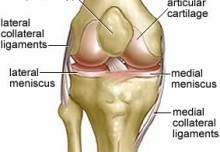 I have written a lot about dementia over the years as well as other issues that can mimic the losses in cognition that are the hallmarks of dementia. One potential cause of poor recall and attention that does not get a lot of attention is a vitamin deficiency. The vitamin in question is vitamin B12, and the deficiency can occur even among older adults who take multi-vitamin supplements. In fact, it is a common vitamin deficiency in older adults, and it is very common in vegetarians as much of dietary vitamin B12 comes from meat products.
I have written a lot about dementia over the years as well as other issues that can mimic the losses in cognition that are the hallmarks of dementia. One potential cause of poor recall and attention that does not get a lot of attention is a vitamin deficiency. The vitamin in question is vitamin B12, and the deficiency can occur even among older adults who take multi-vitamin supplements. In fact, it is a common vitamin deficiency in older adults, and it is very common in vegetarians as much of dietary vitamin B12 comes from meat products.
Vitamin B12 is important to the body’s function, because it has a hand in creating red blood cells, maintaining healthy nerves and generally regulating the body’s overall metabolism. B12 deficiency can happen to anyone, but older adults are even more at risk for pernicious anemia in general. Their digestive systems become less efficient with age, so even increased consumption of the vitamin will not always result in a proportional increase in effective absorption.
Catching B12 deficiency early is important, because some of the effects cannot be reversed if they are allowed to progress too far. The early warning signs of vitamin B12 deficiency beyond include:
- Gradual onset of muscle weakness in the limbs
- Cold or lack of sensation in tips of toes or fingers
- Awkward gait or even stumbling
- Sore tongue or impaired taste and sense of smell
- Low grade fever
- Stomach or intestinal digestive difficulties
- General anemia as diagnosed by a provider.
If you see evidence of any of these issues with an older loved one, it will be important to speak with their provider who can issue orders for a blood test. If caught early enough, normal function can be returned. A question you may be asking is if taking extra vitamin B12 can improve normal memory, and the answer is no. Normal is, well, normal, and vitamin supplements can only move us back to where we have been.
So, if you’re asking if this all means that being alert to vitamin B12 deficiency is important for our older loved ones, the answer is a definite “yes.” If you’re asking if it is important for us all to monitor our B12 levels, that’s a “yes” as well.
Charlotte Bishop is a Caregiver Coach, an Aging Life Care Advisor, a Geriatric Care Manager and founder of Creative Care Management, certified professionals who are geriatric advocates, resources, counselors and friends to older adults and their families in metropolitan Chicago. She also is the co-author of How Do I Know You? A Caregiver’s Lifesaver for Dealing with Dementia.





